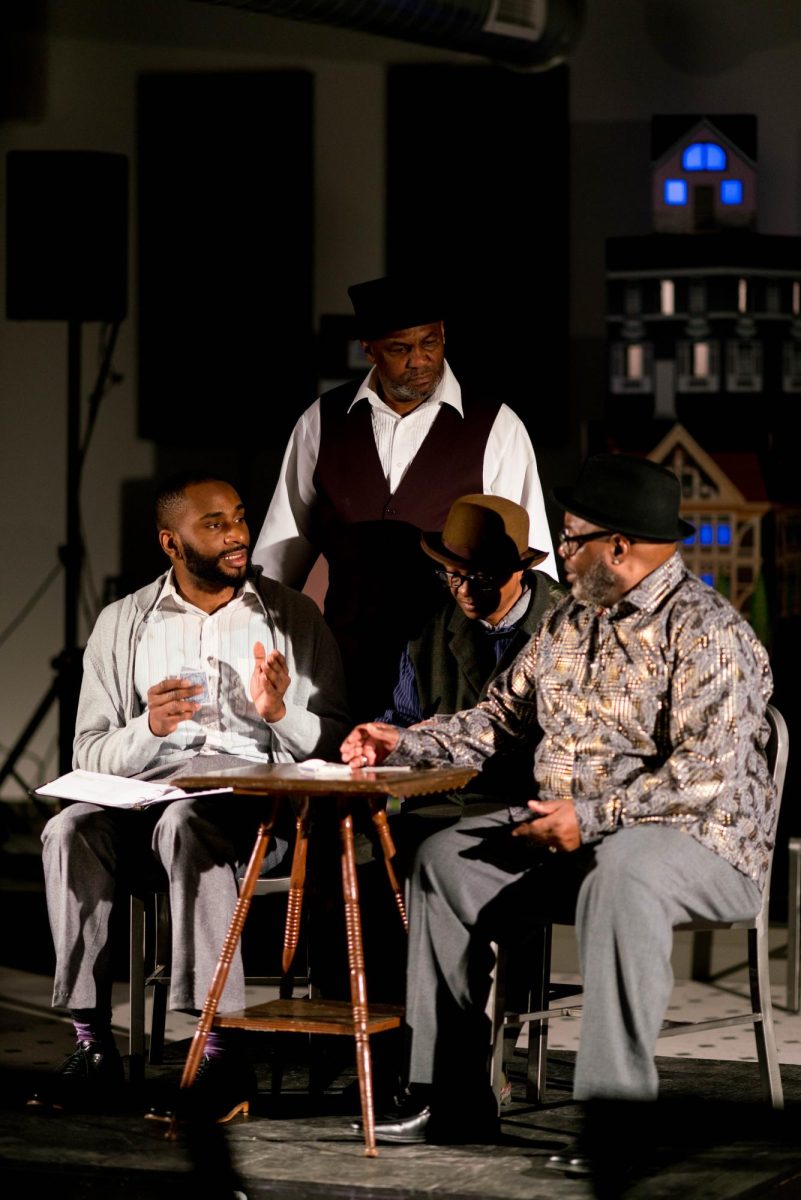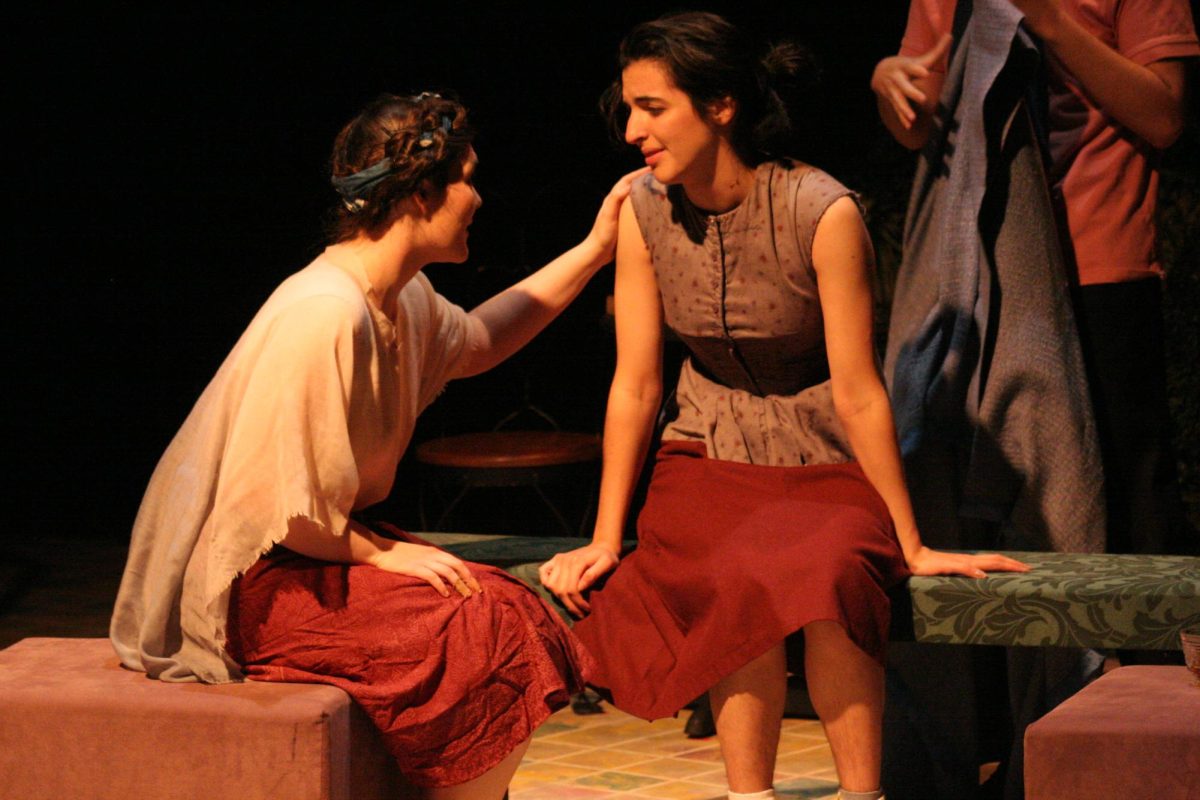On Tuesday afternoon, actors from Y-Haven transformed Moffett Auditorium with a performance of Troubled Waters — a debut play written by members of the Y-Haven Theatre Project and Recovery Center in partnership with Cleveland Public Theater, the Bonner Center, and Oberlin Theater. The play features residents of Y-Haven, which is a YMCA program that provides temporary housing and support for unhoused people, those recovering from addiction, and formerly incarcerated Ohioans. The performance in Oberlin marked one of the show’s final performances, concluding the play’s production journey, which began in October.
The play is made up of several vignettes following the residents of South Shutter. While the residents struggle under the shadow of guilt and shame, a curse has beset them — no rain has fallen in years. Some characters include a man who has a sister struggling with addiction, a granddaughter concerned for her grandmother who struggles to remember information (and is, comedically, a horrible cook), a mechanic who cannot repair anything, and a woman who seemingly cannot do anything but write. One day, the curse seems to break when rain pours down. But when the rain doesn’t stop, the town must grapple with trauma and secrets that threaten to erode and sweep them away if the rising water doesn’t.
The play took place in Moffett, which is often used as a conference center. While not the obvious choice of location for a play, the two platforms offered an intimate environment. Cardboard houses lining the back walls represented the town. The lighting offered an aura of mystery and anticipation, remaining dark blue throughout the majority of the play to represent the onslaught of rain and shining a bright yellow for the flashback scenes during the climax. As the rain continued, the houses were gradually covered with blue blankets to represent the incoming floods. As there were no curtains, the actors sat off to the side of the stage, but this was little distraction.
One of the stars of the show was Tamika Wiley, who played the role of Lily, the concerned granddaughter. The anxiety and frustration of living with a caretaker who is unable to fully understand her emotions was palpable as she struggled to connect with her after the accident that caused her grandma’s memory to depreciate. Another memorable performance was Cary Collins, who played the role of Dave, a known recluse in the town. Dave doesn’t appear until about halfway through the show when the waters begin to rise and sweep away the other houses in town. His stage presence demands attention, even with his self-imposed isolation from the other characters. Finally, Jason Stubbs, who played the brother of the woman struggling with addiction, was able to deliver a masterclass performance as his character highlighted the painful experience of being unable to get through to a struggling family member.
The cast of Troubled Waters has no main characters. Rather, it seemed like every member in the town shared the spotlight equally, bringing the audience in to meet them. At the end of the performance, it seemed that any of these fictional characters could’ve been your grandparent, brother, or distant neighbor.
Another unique aspect of the performance was that the performers often used note cards or scripts, but this offered little distraction to the actual message of the play. The pauses felt natural and the actors were still able to convey powerful emotions throughout the struggles of the narrative.
After the event, cast members paused for questions and took the time to discuss and reflect on the personal meaning that the program had on them.










